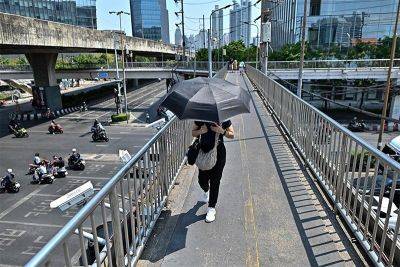Drought, food shortages and deadly heat: El Niño has ended but its impacts are still being felt
Australia’s weather bureau has said the El Niño weather event has now ended as temperatures appear to have “cooled substantially” in the last week.
The naturally occurring phenomenon began in June last year bringing warmer waters to the surface of the Pacific Ocean.
March was the tenth month in a row where the world set a new monthly record for heat, according to the EU’s Copernicus Climate Change Service.
While climate scientists attribute most of the heat to human-caused climate change, they say the consecutive records aren’t exactly surprising given the strong El Niño conditions.
Temperatures over the next few months will indicate just how much recent records are down to global warming. But, bringing marine heatwaves across large parts of the world’s oceans, the phenomenon has been changing global weather patterns with deadly consequences.
El Niño usually causes lower rainfall in South America. Over the last few months, it has brought record temperatures and drought with some countries having to introduce emergency measures.
In Ecuador, droughts linked to El Niño have led to electricity rationing. Hydroelectricity produces around three-quarters of the country’s power and with reservoirs running low, supplies are short.
“Each kilowatt and each drop of water that are not consumed will help us face this reality,” Ecuador’s Ministry of Energy said on Tuesday.
It comes just days after dry weather in Colombia forced water rationing in its capital city Bogotá. Reservoirs have also reached record lows here, threatening supplies of tap water.
The city’s Mayor Carlos Fernando Galán said homes which use more than 22 cubic metres of water per month will have to pay additional fees and those wasting water could face fines.
Colombia also relies heavily on hydropower and stopped exporting energy to Ecuador in early April to conserve domestic supplies. Wildfires have been raging around the country’s capital during the extended hot, dry spell.
A deadly heatwave swept across West Africa and the Sahel last month with temperatures soaring above 48C in Mali.
New research from World Weather Attribution (WWA) suggests that climate change made temperatures up to 1.5C warmer in Mali







